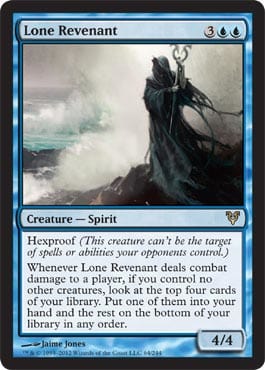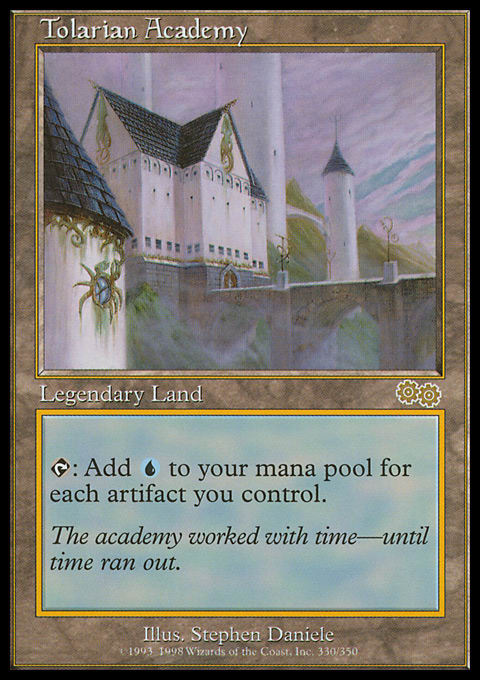In order to be a high-level Magic player, you need to be skilled at playing the game. Being good at deck design is also an important skill set. There are, however, less obvious skills that can also play a big role in your development and success. One of these is the ability to make friends, network, and connect with people.
In many fields, they say, “It’s not what you know, it’s who you know.” This can also be relevant in competitive Magic. This is because you need to have relationships with people skilled enough to help you become better at the game. If you learn nothing else from this article, learn this: The best way for you to improve is to playtest and discuss Magic on a regular basis with players who are better than you. Don’t avoid playing against players that are better than you, view it as a precious opportunity.
When it comes to improving your skills with the learning-by-doing method, there becomes a quantity-versus-quality issue. There is definitely a quality to quantity when it comes to Magic. The more you play, the better. Thanks to Magic Online, there is easy access to quantity. You can play Magic as often and for as long as you like. This alone can’t guarantee you a quantum leap as a player. I’ve known many committed Magic players who showed up at the local game store for tournaments multiple times a week while also burying countless hours into MTGO and seemed to forever remain Pro Tour Qualifier punching bags, supplying other local players with a seemingly never-ending supply of relatively easy wins. This is where the importance of quality comes into play.
Before I delve too far into this discussion, I need to share something about myself. I’m a big-time introvert. My mother used to say I was just shy, but that’s because she didn’t have a full understanding of introversion. The best explanation I’ve come across was in a book called The Introvert Advantage. It explains that if you recharge and refresh by spending time alone or with just one other person, you’re probably an introvert, and if you recharge and refresh by going out and spending time with large groups of people such as at parties, clubs, and various types of gatherings, you’re probably an extrovert. So, it’s not just about having a preference, it’s about what actually promotes your wellbeing and your ability to function at your best.
Being able to work around my introversion has been a crucial part of how I became successful at Magic. When I first started playing, in order to have opponents, I taught some of my friends how to play. Fortunately for me, I have an aptitude for strategy games, so I quickly started crushing everyone in my small social circle. Unfortunately, this helped lead to my friends losing interest in Magic and me losing interest in my friends. Sadly, I had become obsessed with the new game in my life. One day, I was whining to my local card shop owner about my inability to find worthy opponents, and she told me about a fellow named Brad who had the same problem.
While not a fan of meeting new people, I was desperate, so I called this Brad fellow. Luckily, we hit it off, and we were instantly the best players each other knew. Now with a challenging opponent, I improved even quicker, and I designed new decks at a fast and furious pace. At about this time, we discovered tournaments. Having each other to test with and share ideas with was a tremendous asset. Brad was the card guy: He had a huge collection and made sure we always had the cards we needed for events. I was the designer: I made sure we always had a deck design that would keep us ahead the field. Brad even won Northeast Regionals with a mono-black hand destruction deck I designed for us.
As we played in tournaments, I started to meet more strong players. For an introvert like I was, it was a very convenient icebreaker. I didn’t have to come up with a reason to talk to someone—we would be paired up and then pretty much have to talk to each other. This was how I met future Hall of Famer Dave Humpherys. I beat him in the semi-finals of the first “big” tournament I played in, yet it was clear to me that he was much better than I was. This was quite significant to me. I didn’t own any of the Power Nine (Brad only had his personal set, and I couldn’t afford them), and yet, I was used to beating pretty much everyone. Here was a guy who not only had them, but who had the skills to back them up.
At this point, my obsession with being the best Magic player possible overcame my introversion. I chatted up Dave, and it became apparent that in many ways, he was a kindred spirit. He was taciturn even with people he considered his friends, he was passionate about winning, and he was great at it.
All friendships are mutually beneficial in some way, even if it’s just feeling good about yourself because you’re the one person willing to be friends with someone whom no one else likes. When I was younger, I tended to be drawn to being friends with guys who were older than I was and who were really competent. I was hungry to learn, and I befriended people who were smart and knowledgeable. They say a good CEO hires people smarter than he is; I befriended smart people who could teach me things and help me become better at things. Looking back, I don’t feel any guilt about this. One, I strove to be a good friend, and I worked hard to pull my weight in relationships, and now, I frequently find myself being friends with younger people whom I can help mentor. It’s almost as though part of me wants to return the favor on behalf of my younger self.
While Dave isn’t actually older than I am (despite our appearances), he taught me a lot, at least about Magic. While I may not have been better than he was at the time and probably wasn’t yet as good as he was, Dave had now found a friend who could challenge him for cardboard supremacy. He already had some friends at MIT who were pretty good players, but I had several things going for me: I was always willing to test, I was always willing to drive, I actively cultivated his friendship, and I had at least slightly better social skills than his MIT cronies.
With the advent of the Pro Tour, Dave and my obsession with the game and with winning blossomed. In contrast, Brad’s slowly started to fade, perhaps in part because he started to feel like a bit of a third wheel as he found less time for Magic and Dave and I steadily improved our skills. As the local tournament scene grew, I grew my local network of Magic friends: Rob Dougherty, Jim Lemire, Sean Fleischman, and through Sean, a young up-and-comer named Jon Finkel. As the international tournament scene grew, I started making friends from all over the world. While I qualified for every Pro Tour and World Championship, my local friends often didn’t. This was a blessing in disguise for me. Instead of hanging out with my existing friends at Pro Tours, I was forced to make new ones if I wanted people to test with onsite.
It may have started out as a natural inclination to bond with people with shared interests, but at some point, it became a very conscious choice to help advance my Magic career. The best example was probably at U.S. Nationals in 1997. At that point, I was actively preparing for Pro Tours with the likes of Dave Humpherys, Rob Dougherty, and Tom Guevin as a member of Team Your Move Games.
Even so, we were always in danger of falling behind, because now many others had started to recognize the benefits of working as a team to prepare for events. Team events hadn’t been invented yet, but teams like TOGGIT and YMG were like the X-Men and Avengers of the Magic world, and there several other big teams competing with us for talent.
At Nationals that year, the champion was an unknown named Justin Gary. I’ve always been impressed by designers who can break open a stale format, and Justin had done so. I was one of many players dominating the Standard format with Buried Alive and Ashen Ghouls. White weenie with pro-black creatures was considered one of the only viable alternatives. Justin’s innovative deck was ready for both. It featured cards such as Wildfire Emissary and Disintegrate. Emissary was perfect for the environment because with 4 toughness, it could beat Ashen Ghouls, and with protection from white, it could beat white weenie. I think even Justin lost track of how many Ghouls he removed from the game with Disintegrate. In those days, even if I missed the Top 8, I tried to stick around to see who won and congratulate the winner. As an introvert, this wasn’t my inclination; as a Magic player, this was just good business. Well, when I saw what Justin was playing and that this unheralded player (he wasn’t even on the Pro Tour!) had won the whole thing, I made sure to introduce myself.
Sure enough, he quickly became a Pro Tour fixture, and my friendship “investment” paid off. We playtested together in Rome in 1998 (he crushed my Tolarian Academy deck on his way to the Top 8 in the actual PT), and soon, he was the newest member of Team Your Move Games as we kept pace in the talent arms race. One of the consequences of my introversion is that I tend to be very picky about whom I spend time with. I have limited energy for spending time with others. I try to conserve it for people whom I’m really compatible with. Fortunately for everyone involved, Justin fit quite smoothly into our team’s social dynamic.
Well, much has changed since the 90s, including on the Magic scene. Besides the fact that many of the people I’ve named in this article no longer play Magic, the way we make social contacts in the Magic scene has evolved tremendously thanks to the Internet. MTGO, Magic strategy sites, Facebook, and Twitter have changed how we get to know other Magic players and how we learn about Magic.
Increasingly, I find myself the target of Magic networking as opposing to being the networker; I’ve become the networkee if you will. This sort of thing is especially evident on Facebook. I have an attractive female friend who plays Magic and is very active on Facebook. She frequently receives friend requests from men she doesn’t know. When she asks them why they’re sending her the request, they typically say that they noticed that she plays Magic and that, oh yeah, she’s really hot. There are so many problems with this. First of all, she’s not trying to use her Facebook profile as a dating profile. And even if she were, if a guy wants to convince her to date him, there is no value in pointing out that he’s attracted to her. Men tell her things like, “I think you’re hot, let’s hook up.” They seem to think that her being attractive is a reason she would want to date them, while of course, if anything, it’s the opposite. They should be focusing on trying to convince her why they’re awesome if they want her to have a reason to date them, not just pointing out that they’re among her admirers.
This is my roundabout way of saying that the fact that you want someone to do something for you (especially if you don’t know each other) doesn’t mean that that’s a reason the person should do it. What’s in it for him or her? This is Relationship Building 101 . . .
I too receive many friend requests from Magic players I don’t know. Unlike my comely friend above, however, I know that I’m not going to be bombarded with messages telling me: “You’re hot.” I also don’t bother asking why they’re sending me the request; I just hit accept. (As an aside, please feel free to friend me on Facebook—just finish reading this before you do so.) However, like my friend, these friend requests are often followed by a message wanting something from me. Do I have any good deck ideas to share? Can I help with a deck they’re working on? What deck should they play in tournament X?
It’s almost as though because I’ve accepted something called a friend request that these people think we suddenly have an actual friendship. It seems that the Internet is teaching people the wrong ideas about how people become friends and how to get what you want.
Fortunately, not everyone falls into this category. I met Rob Martin a little over a year ago at the TCGplayer Championship in Chicago. I didn’t really know anyone there, and between rounds, he introduced himself to me. He told me he thought my deck was awesome, and he congratulated and encouraged me every round as I made a somewhat improbable march all the way to the Top 8 with my mono-red deck. There didn’t seem to be anything in particular in it for him; he was just being a nice guy. I became a little suspicious when he asked me to be a guest on his podcast. However, when my introversion initially prevented me from going on his show, he continued to treat me the same, showing me no ill will about not getting me on his show.
Erin Campbell is someone I’ve never actually met. She is someone who says nice things about my articles, plus puts links to them on Facebook and Twitter. When she started tweeting about me and mentioning me in some of her podcasts, I braced myself for her to ask me for Magic-related favors, and happily, they never came. I started following her on Twitter, and I came to realize that she’s just really cool.
By being cool to me without just straight off asking me for things, these people have demonstrated that they’re my friends first. Now, I’ve become happy to give them input on Magic topics, including various decks they’ve worked on, and I even eventually overcame my introversion enough to go on both of their podcasts. (I recommend both The Men of Magic and The Deck Tease, by the way . . . )
Thanks to the Internet, networking has become easier than ever. Just don’t let it replace face-to-face friendships, face-to-face playtesting, and just good, old conversations. This is especially true if you can find some really talented people to do these things with.



























